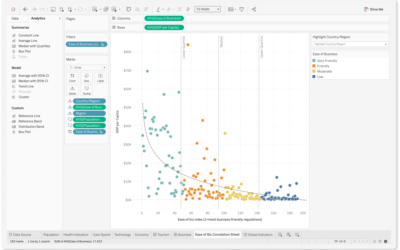Context
Our end customer, a start-up, has recently completed a capital increase.
Subsequent to the capital increase, the company wished to reward the involvement of these executives by allocating BSPCEs (Bons de souscription de parts de créateur d’entreprise) at a lower issue price than that used at the time of the capital increase. To justify such a situation, it was envisaged that the BSPCEs would be allocated without dividend rights and/or without voting rights.
Altermès was commissioned by the shareholders to assist them in valuing the shares subscribed in exercise of BSPCEs.
👆 To find out how BPSCE works, click here!
Special case: valuation of non-voting and/or non-dividend-paying shares
Within a joint-stock company, it is possible to allocate preference shares enabling shareholders to benefit from rights and prerogatives specific to an ordinary share:
- Political rights: shares with double or multiple voting rights, which give the shareholders concerned a greater say at general meetings.
- Financial rights: preferred shares entitle shareholders to a higher dividend than other shareholders.
It is also possible to issue shares with no dividend rights for a period to be determined, or with no voting rights (article L228-11 of the French Commercial Code).
In the first case, the shareholder does not receive a dividend for the defined period. In the second case, the shareholder does not vote at General Meetings. It therefore has no say in decision-making.
Our value proposition
We worked on an evaluation report in 2 phases:
- Phase 1 – Company valuation (basis for BSPCE calculation)
- Market research
- Financial statement analysis
- Business plan analysis
- Valuation methods :
- Transaction multiple ;
- Stock market multiple ;
- Discounted Cashflow (DCF) ;
- Net asset value.
2. Phase 2 – Valuation of BSPCE
- Valuation of shares without dividend rights (temporary or permanent) based on DCF ;
- Valuation of non-voting shares: although this approach is possible and has been observed on the market, it appears to be more subjective;
- Valuation of action integrating a mix of solutions envisaged in the first 2 points.
Results of our work
Our work enabled us to assess the possible discount in return for the elimination of dividend rights. It varies according to the earnings distribution rate and discount rate used, and can reach 30% of the company’s share price, in line with what is generally observed on the markets.
In the same way, our work has enabled us to evaluate the possible discount in return for the abolition of rights. It can amount to between 5% and 20% of the company’s share price, compared with what is generally observed on the markets.
👆 If you would like us to help you increase the value of your company or BSPCE, our teams are available to study your project!
👆 Would you like to know more about our business valuation offer, click here!











